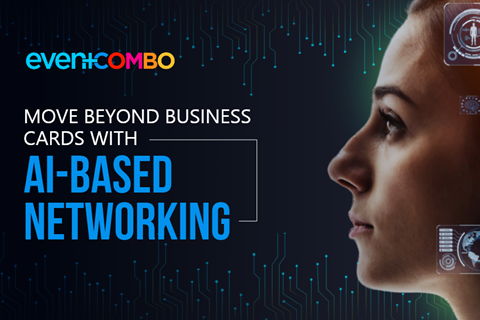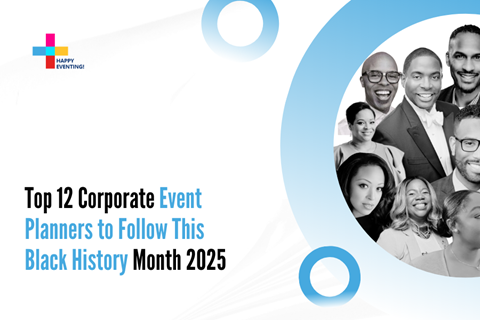

Success is a relative term. Everyone involved in organizing an event punch in days or months of hard work and dedication to deliver a smash-hit event. And, that is why assessing event performance is so crucial and requires analysis, based on specific metrics or performance indicators. Evaluating the bygone event is a post-event requisite that helps in introspecting and evolving for the next event. Although there is no straightforward way of determining an event’s success, measuring certain KPIs can surely give you answers to help improve and scale.
The Purpose of Evaluating an Event's Success
An event's performance and outcome cannot only be measured in absolute numbers. To create a comprehensive success report, it is essential to identify the purpose of this evaluation and understand what defines a successful event. It is also equally important to decide the factors that are critical for aligning business objectives with the event's goal.
Defining an event’s purpose or goal often requires correctly answering a set of questions. However, the dilemma is that as an organizer, you must also prepare the questions yourself!
Broadly, an event’s purpose, and hence success evaluation, can be derived from the following areas
a) Finance
b) Marketing
c) Branding
d) Sales
e) Attendees
f) Sponsors
Tools and Metrics for Measuring Event Success
Each purpose of an event can be linked to several metrics and tools that cumulatively determine the success of an event. Interestingly, each metric fits in like an element on the moodboard to deliver a complete overview when put together. These metrics are often divided into qualitative and quantitative categories to relate them with event-specific activities.
1. Attendance (Registrations or Tickets Sold) - The first metric is the number of registrations or tickets sold. This response and financial marker indicate a pre-event statistic that has several uses. Time-mapping the RSVPs or tickets sold before the event date can directly be linked to the performance of marketing campaigns and, of course, the ROI. Depending on when the RSVPs were made or tickets were sold (more on weekends or workdays) can also help identify the demography of the prospective attendees. If an event has ticket/entry categories, it is critical to notice and correlate the number of tickets booked to the categories. The output then must be further processed and compared with the attendee turnout numbers collected, based on actual check-ins.
a) If the turnout to tickets ratio is small it confirms that promotion, invites, content, and communication were on-point, and future events can follow the track.
b) If the turnout to tickets ratio is significant it red flags factors like marketing, reminders, speaker panels, or even incorrect demography targeted. Thus begins the quest to find the answer to why?
2. Post-Event Survey - Undeniably, post-event surveys from attendees paint an accurate picture of everything that went right or wrong in an event. To understand the event experiences of the ultimate consumers, making the survey interesting is fundamental. If the survey isn't heavy on the negative side, it indirectly indicates that the event was a success. The reason is universal - an unhappy or unsatisfied attendee is always more motivated to respond than a happy or neutral one. Negative surveys must be analyzed with a keen eye to figure out the issues that need correction in the future.
3. Social Media Actions - All the actions on social media before/during/after-event is a great event-feedback tool that can shed light on popularity and engagement metrics. Non-attendee participation during the event's live streaming, likes, mentions, and shares on social media, can draw a quick success graph for the event. Also, it is essential to ensure that a relevant, easy-to-imprint hashtag is used in all promotions across social channels to obtain an accurate assessment of event performance.
4. Speaker Engagement and Attendee Interaction – Analyzing qualitative metrics can give long-term insights about executing future event agendas. Reporting tools that capture during-event details are paramount like
a) Duration of attendance
b) Time spent in event rooms or booths
c) Specific room check-ins and checkouts
These reports can be linked to success metrics such as
a) Speaker engagement
b) Preferred topic/product discussions
c) Attendee interactions
d) Request/submission of networking details
5. NPS (Net Promoter Score) - The net promoter score makes things little exciting instead of point-blank asking attendees emotionally driven questions in a survey. NPS asks attendees to rate their experiences on a scale of 1 to 10 giving them the feel of power and being the decision-maker. The feedback inherently becomes even more specific and focused. Based on the ground-level analysis, it is pretty simple to set an NPS score before the event and compare actual scores to determine attendee-affirmed success.
6. Returning Attendees - Attendee data is hyper-important. In case of a company that frequently organizes events, the data of past event attendees is even more crucial. Simply comparing recurrent attendee data on a YOY basis can conclude the events’ actual growth. If the returning attendee number slows downward, delving into engagement factors becomes imperative.
7. Sales and Leads – An event does not magically escalate sales figures and funnels. The aftershock of events sometimes takes months to show results. A significant share of the increase is dependent on networking opportunities entwined throughout the event cycle. Also, quantifying sales and allocating lead generation to processes like speaker panels or marketing can help build a budget foundation for future events. Comparing increase in sales in every quarter is the real check on the success of events based on sales and leads KPIs.
8. Sponsor Feedback - Isn't it one of the most significant post-event activities to get the accurate picture straight from the horse's mouth? Approaching the sponsors for event feedback through surveys, evaluation meetings, and interviews provides honest and ground-breaking inputs. It is equally important to respect their feedback and own them constructively for continuing professional terms in future events.
These are some important KPIs for measuring an event’s success. But like events, the metrics or KPIs can also differ based on event type, industry, goal, or overall management’s vision. The tools mentioned here are just the tip of the iceberg, but are certainly enough to get you through reasonable measurement of an event’s success and set the course for diving deeper into more crucial insights.
Gain the edge with 360-degree event management platform and forward-thinking tools for your next event with some Fireworks!

Networking is one of the most valuable ways to discover boundless opportunities and for 77.7% of business professionals , in-person conferences open a greater scope to make rewarding connections.

When planning a healthcare fair, the goal goes beyond booking a venue and sending out invites. You’re creating an event that brings together healthcare professionals, researchers, and exhibitors, all seeking value and...

Diversity and inclusion are at the heart of the events industry, where planners are focused on creating experiences that bring together people from all walks of life.